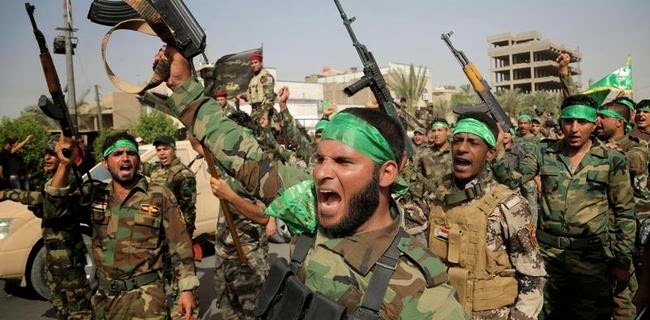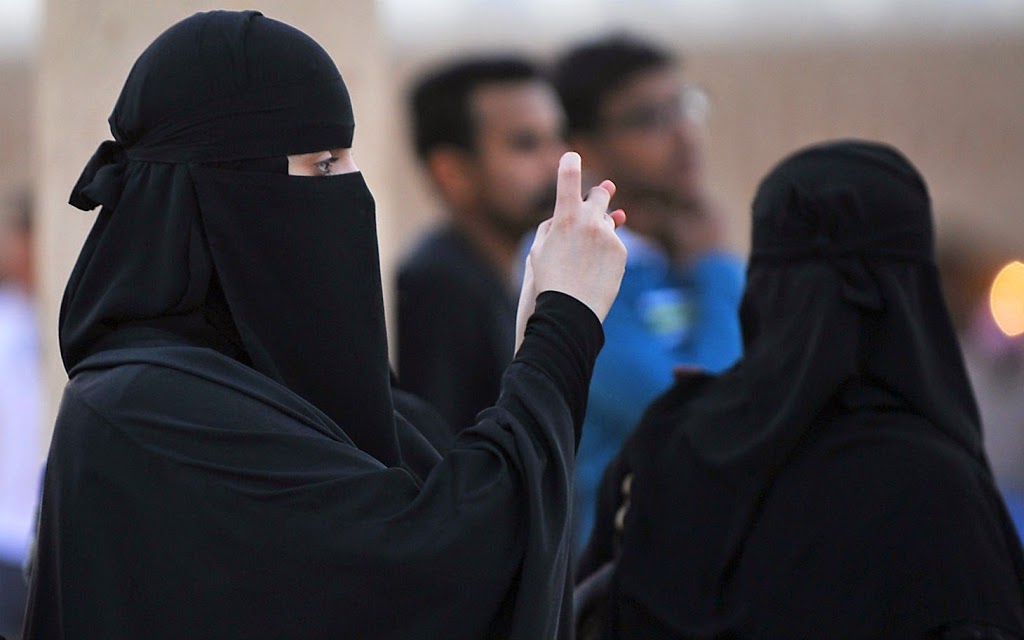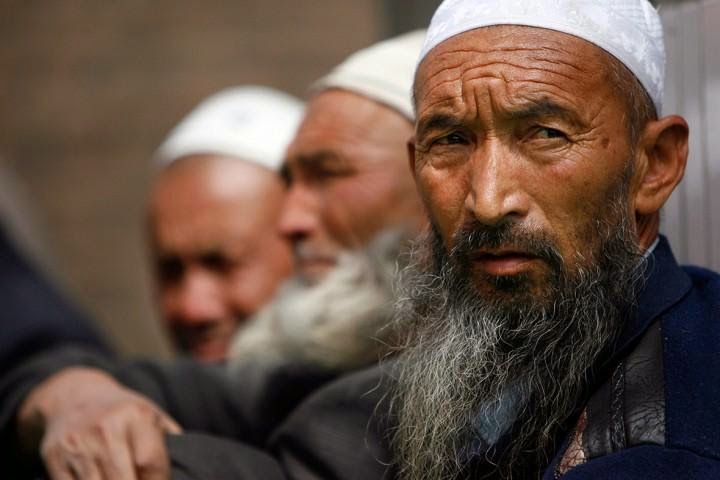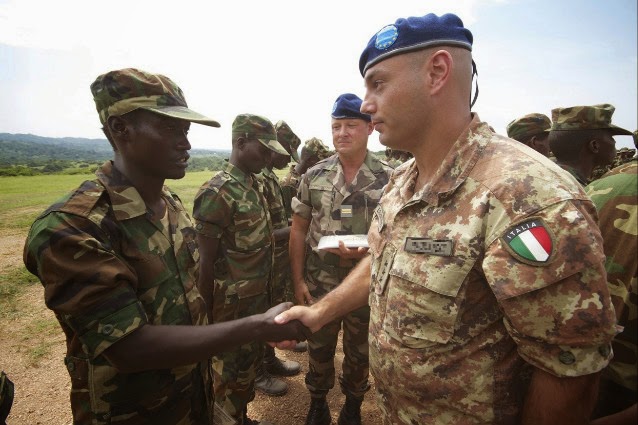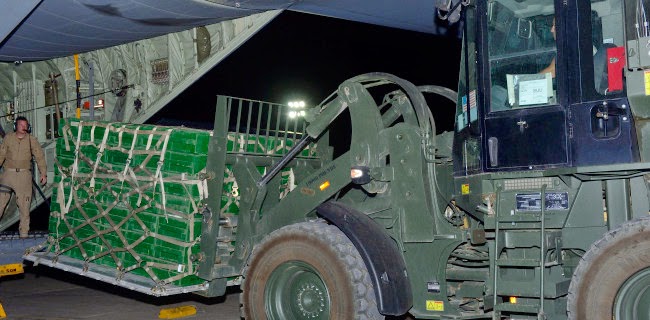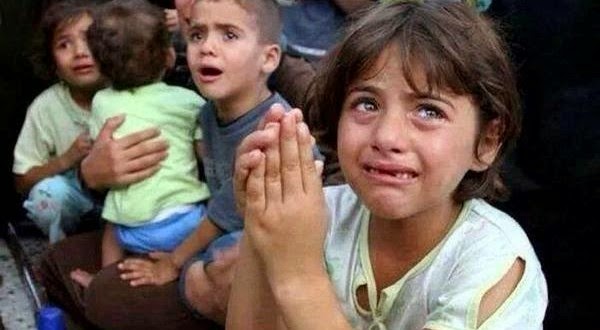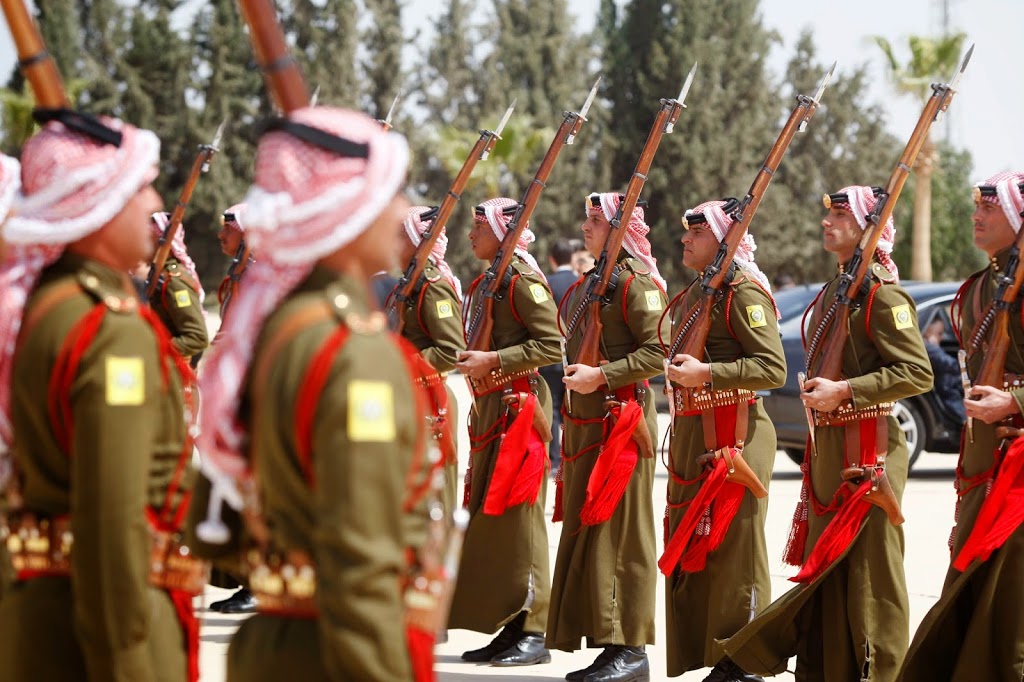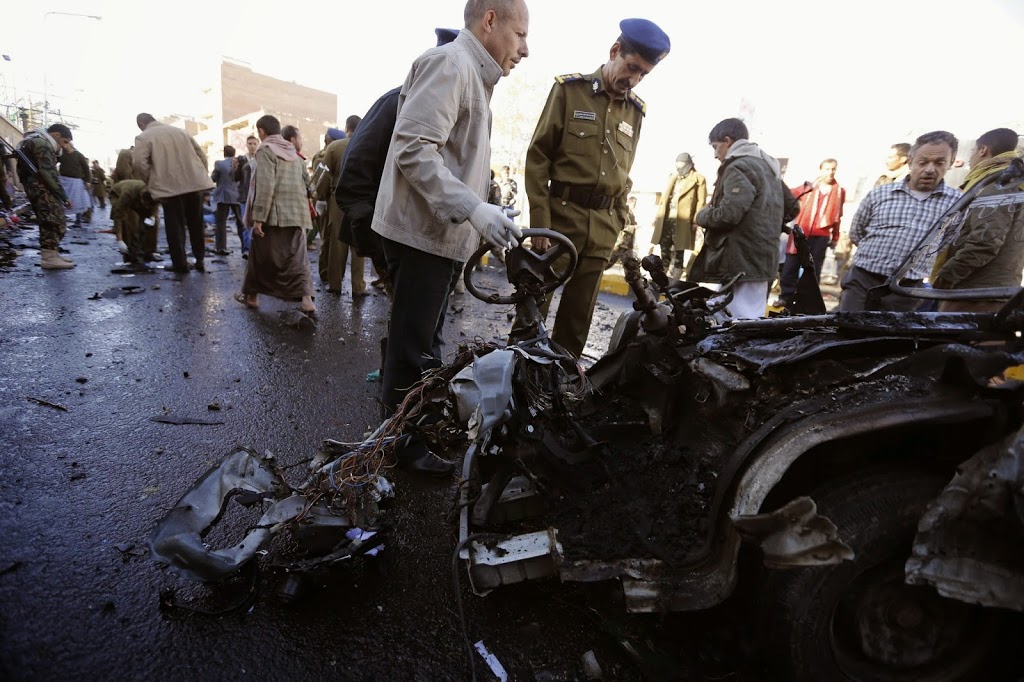Tripoli proposes Moscow to train Libyan Army, supply modern weaponry
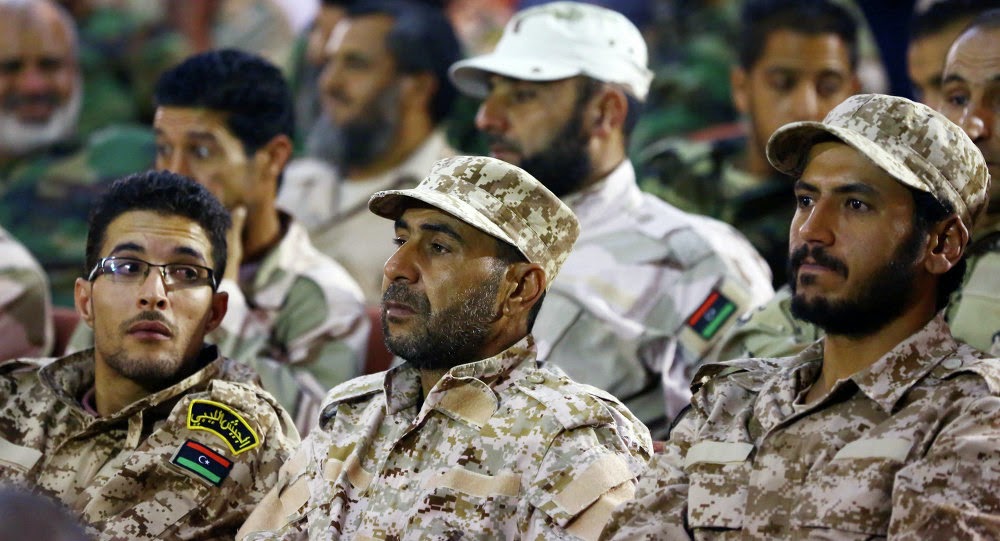
Libya wants to create a “flexible and a maneuverable army” with the assistance of Russia, the special Ambassador of the Libyan parliament’s president said.
Abdelaliz, who also served as Libya’s Foreign Minister from January 2013 to August 2014, described the Russian-Libyan military cooperation over the past 40 years as “historic” and extensive.
The diplomat also said that Libya wants to create a “flexible and a maneuverable army” and that the country “met understanding of this issue from Russia.”
Hamas urges its Lebanon and Syria branches to launch attacks on Israel
A senior Hamas leader called Wednesday for the formation of Palestinian militant groups loyal to the Gaza-based resistance movement in refugee camps in Lebanon and Syria in order to attack Israeli-occupied territories.
Mahmoud Zahar told reporters in the Gaza Strip that Lebanese and Syrian branches of the Ezzedine al-Qassam Brigades, Hamas’ armed wing, should launch attacks on Israel “to help us liberate Palestine.”
Hamas has a significant political influence among Palestinians in Lebanon, especially in refugee camps where the resistance movement has an armed presence.
Due to tensions amongst different Palestinian groups, the movement in the past years has been busy protecting itself from rival factions, while also maintaining stability within the crowded and arms-loaded refugee camps.
The failure of the Lebanese government to meet the humanitarian and social needs of Palestinian refugees has forced Hamas and other Palestinian parties to become mainly concerned with underlying social injustices, meeting Palestinians’ basic needs, and countering stereotypes regarding the camps being a security threat or a hub for terrorists, while also struggling to assert the centrality of the fight against Israel.
For many armed Palestinians within the camps, the right of return, a political principle asserting that Palestinians have a right to return to pre-1948 Palestine, has become marginalized, with many getting engaged in conflicts both in Lebanon and neighboring Syria.
Hezbollah, a Lebanese resistance movement, has asserted itself as the leading and most prominent movement against Israel in Lebanon, especially after liberating South Lebanon in 2000 after 22 years of Israeli-occupation.
The 2006 Israeli summer aggression on Lebanon killed some 1,200 Lebanese, most of them civilians, and 160 Israelis, most of them soldiers killed by Hezbollah fighters.
Meanwhile in Syria, a number of Palestinians have found themselves, either voluntarily or involuntarily, caught up in the four-year-old conflict that has affected Palestinian refugee camps all over the country. Many decided to join armed groups seeking to topple Syrian President Bashar al-Assad.
Meanwhile, Hezbollah has intervened militarily in support of Assad, describing the fight in Syria as “existential” and arguing that the conflict in the country targets the resistance as a whole.
Hezbollah’s Iran-supplied weapons pass through Damascus, Syria’s capital, hence making Syria crucial for the group’s weapons buildup.
Despite differences in Syria, both Hamas and Hezbollah say the alliance between the resistance movements remains motivated first and foremost by the Arab-Israeli conflict.
Hezbollah Secretary-General Hassan Nasrallah said in an in-depth three-hour interview with Lebanon-based Al-Mayadeen television last month that Hezbollah was seeking to build a strategic alliance with Hamas and other resistance groups in Palestine, saying that Hamas demonstrated a will to strengthen relations again with Iran and Hezbollah despite differences regarding the Syrian conflict.
“Even if Hamas chooses to mend its relationship with the Syrian regime, Syria might have some difficulty accepting this due to past events and developments,” he said, adding that Palestinians in Syria have joined oppositions groups but there was “no proof” that Hamas was working with a certain group.
Moreover, Zahar on Wednesday denied “any interference” by Hamas in Egypt, which last month declared the Brigades a terrorist group and accused it of aiding a spate of militant attacks on security personnel in the restive Sinai Peninsula.
“Our guns are always trained on the enemy,” Zahar said, referring to Israel.
For 51 days this summer, Israel pounded the Gaza Strip — by air, land and sea — killing more than 2,310 Gazans, 70 percent of them civilians, and injuring 10,626.
The Israeli offensive ended on August 26 with an Egypt-brokered ceasefire deal.
On Monday, hundreds of Hamas supporters marched in the Gaza Strip to protest the Egyptian court decision.
In a speech to the crowd, senior Hamas official Mushir al-Masri said that Saturday’s ruling against the militant group’s Ezzedine al-Qassam Brigades was “political” and meant to “conceal failure and the lack of security in Egypt at this time.”
Hamas is an offshoot of Egypt’s Muslim Brotherhood, which the Egyptian authorities have also declared a terrorist group and have repressed systematically since the army ousted one of its leaders, Mohammed Mursi, from the presidency in 2013.
The Palestinian faction has repeatedly denied accusations that it has carried out attacks in the North African state, saying it cannot act against Egypt’s national security.
In November, Egypt decided to create a one kilometer-deep buffer zone in the Sinai Peninsula along the border with Gaza by clearing more than 800 houses, displacing more than 1,100 families, and destroying and neutralizing hundreds of subterranean tunnels.
Under Israeli blockade by air, land and sea since 2007, the Gaza Strip has seven border crossings linking it to the outside world. Six of these are controlled by Israel, while the seventh — the Rafah crossing — is controlled by Egypt.
For years, the Gaza Strip has depended on construction materials smuggled into the territory through a network of tunnels linking it to Egypt’s Sinai Peninsula.
However, the recent crackdown on the tunnels by the Egyptian army has effectively neutralized hundreds of tunnels, severely affecting Gaza’s construction sector.
Source: al-akhbar
The 10,000-word ISIS manifesto that shows what life is really like for female jihadists
What Isis expect from women has been revealed more fully in an extensive manifesto on their role, which lambastes western modes of thought such as feminism and gives the stark advice that it is “legitimate” for children to be married to fighters at the age of nine.
The 10,000 word manifesto, uploaded by the all-female Al-Khanssaa Brigade’s media wing onto popular jihadist forums, existed only in Arabic until it was discovered and translated by Charlie Winter, a researcher on jihadism in Syria and Iraq at the counter extremism think thank the Quilliam Foundation.
The document, entitled ‘Women in the Islamic State: Manifesto and Case Study’, emphasises the “sedentary” role of women as homemakers, wives and mothers, heavily criticising Western women and human rights concepts of gender equality.
The guide is being treated as a more accurate representation of what is expected of women under the group’s self-declared caliphate as it directly targets female recruits from Saudi Arabia and the Gulf instead of the West.
Western recruits have posted pictures of themselves posing with guns and a suicide belt, with one woman from south London living in Syria even boasting that she wanted to become the first female to behead a western hostage.
But this latest piece of propaganda makes clear that accounts from young Western girls on social media, who exaggerate their roles in order to encourage others to come over, is not always a true reflection of what Isis believes life should be like.
Mr Winter told The Independent: “I think that Western women have a motive to recruit other Western women. This document has a motive –recruiting women from the Gulf. The reflection that it gives of an idealised position of women is at lot closer to the reality than what our British girls are saying, for example talking about joining police forces and training for battle.
Islamic State executes three of its Chinese militants
The Islamic State has killed three Chinese militants who joined its ranks in Syria and Iraq and later attempted to flee, a Chinese state-run newspaper said, the latest account of fighters from China embroiled in the Middle East conflict.
China has expressed concern about the rise of the Islamic State, nervous about the effect it could have on its Xinjiang region, which borders Pakistan and Afghanistan.
But Beijing has also shown no sign of wanting to take part in the U.S.-led coalition’s efforts to use military force against the militant group.
Around 300 Chinese extremists were fighting with the Islamic State after travelling to Turkey, the Global Times, a tabloid run by China’s ruling Communist Party’s official newspaper, said in December.
The paper on Thursday cited an unnamed Kurdish security official as saying that a Chinese man was “arrested, tried and shot dead” in Syria in late September by the Islamic State after he became disillusioned with jihad and attempted to return to Turkey to attend university.
“Another two Chinese militants were beheaded in late December in Iraq, along with 11 others from six countries. The Islamic State charged them with treason and accused them of trying to escape,” the official said, according to the paper.
Islamic State, which has seized parts of northern and eastern Syria as well as northern and western Iraq, has killed hundreds off the battlefield since the end of June, when it declared a caliphate.
Chinese officials blame separatists from the East Turkestan Islamic Movement (ETIM) for carrying out attacks in Xinjiang, home to the Muslim Uighur people. But they are vague about how many people from China are fighting in the Middle East.
Foreign Ministry spokesman Hong Lei did not comment on the report at a regular press briefing, but said China was opposed to “all forms of terrorism”.
“China is willing to work with the international community to combat terrorist forces, including ETIM, and safeguard global peace, security and stability,” Hong said.
Human rights advocates say economic marginalisation of Uighurs and curbs on their culture and religion are the main causes of ethnic violence in Xinjiang and around China that has killed hundreds of people in recent years. China denies these assertions.
China has criticised the Turkish government for offering shelter to Uighur refugees who have fled through southeast Asia, saying it creates a global security risk.
Source: pakistantoday
EU appoints Italian General as head of training mission in Somalia
The EU’s Political and Security Committee on Wednesday appointed Brigadier General Antonio Maggi, from Italy, as the new Commander for the EU Training Mission in Somalia (EUTM Somalia).
Gen. Maggi will take up his duties on March 8. He will succeed Brigadier General Massimo Mingiardi, who had been in the position since December 2013, noted an EU statement.
EUTM Somalia, launched in spring 2010, is part of the EU’s comprehensive approach to create a stable, democratic and prosperous Somalia; it has contributed to training over 4,000 Somali troops so far.
The mission delivers political and strategic advice to the Somali ministry of defence and the chief of defence forces on security sector development.
It also advises on military training so as to lay the foundations of a Somali-owned military training system.
Since January 2014, the mission has been based in Mogadishu, capital of Somalia.
Source: kuna.net.kw
Italy sends 30 tons of munitions to Kurdistan and 200 military advisors to train Peshmerga
United Nations: Islamic State’s terrorists selling, crucifying, burying children alive in Iraq
Iraqi boys aged under 18 are increasingly being used by the militant group as suicide bombers, bomb makers, informants or human shields to protect facilities against US-led air strikes, the UN Committee on the Rights of the Child said.
Militants are selling abducted Iraqi children at markets as sex slaves, and killing other youth, including by crucifixion or burying them alive, a United Nations watchdog said on Wednesday.
Iraqi boys aged under 18 are increasingly being used by the militant group as suicide bombers, bomb makers, informants or human shields to protect facilities against US-led air strikes, the UN Committee on the Rights of the Child said.
“We are really deeply concerned at torture and murder of those children, especially those belonging to minorities, but not only from minorities,” committee expert Renate Winter told a news briefing. “The scope of the problem is huge.”
“We have had reports of children, especially children who are mentally challenged, who have been used as suicide bombers, most probably without them even understanding,” Winter told Reuters. “There was a video placed (online) that showed children at a very young age, approximately eight years of age and younger, to be trained already to become child soldiers.”
The UN body, which reviewed Iraq’s record for the first time since 1998, denounced “the systematic killing of children belonging to religious and ethnic minorities, including several cases of mass executions of boys, as well as reports of beheadings, crucifixions of children and burying children alive”.
A large number of children have been killed or badly wounded during air strikes or shelling by Iraqi security forces, while others had died of “dehydration, starvation and heat”, it said.
A militant group has committed “systematic sexual violence”, including “the abduction and sexual enslavement of children”, it said.
“Children of minorities have been captured in many places… sold in the market place with tags, price tags on them, they have been sold as slaves,” Winter said, giving no details.
The 18 independent experts who worked on the report called on Iraqi authorities to take all necessary measures to “rescue children” under the control of militant groups and to prosecute perpetrators of crimes.
“There is a duty of a state to protect all its children. The point is just how are they going to do that in such a situation?”, Winter said.
Source: khaleejtimes
Jordan want send ground troops into Syria to fight Isis
Jordanian officials are considering sending troops on the ground in Syria to fight the Islamic State (Isis) militants following the horrific execution of Jordanian pilot Moaz al-Kasasbeh.
Hinting on the move, Washington Post foreign correspondent, William Booth, tweeted from the Jordanian capital Amman on Wednesday (4 February) saying an “escalation” is imminent.
Jordan legislators say “stage is set for escalation” in fight against ISIS, don’t rule out use of ground troops & special forces in Syria.
A second Washington Post correspondent from Amman, Taylor Luck, also tweeted hinting on a possible ground attack.
#Jordan officials, MPs: dispatch of Jordanian ground troops to #Syria “next logical step” after Islamic State killing of Jordanian pilot — Taylor Luck يوسف لاك (@Taylor_Luck) February 4, 2015
None of the journalists, however, revealed their source or named specific government officials.
Jordan, a member of the US-led coalition, carrying out air strikes to defeat IS, has promised an “earth-shaking” response in the wake of the brutal Kasasbeh execution video.
So far, Jordan has executed two convicts in retaliation –female suicide bomber, Sajida al-Rishawi, and an Iraqi member of al-Qaeda, Ziad al-Karbouly.
Al-Rishawi, 44, was held captive after she attempted to detonate an explosives belt as part of the 2005 hotel bombings in Amman.
Jordanian pilot’s father: IS ‘wild beasts’
In other developments, the Jordanian pilot’s father Safi al-Kasasbeh condemned his son’s murder and called IS “wild beasts”.
Speaking to Sky News, Safi said: “My feeling is that of every father – I am mourning my own son. The whole world, the Arab world, the Jordanian society is mourning with me.
“What they did is more than criminal – it’s never been seen before in history. Even animals couldn’t do this – they are wild beasts, they have no connection to Islam. They are not human beings let alone Muslims.”
Jordanian pilot’s brother speaks out
Speaking to Gulf News, the brother of the Jordanian pilot, Jawdat Kasasbeh said: “A large number of Jordanians used to sympathise with them [Isis] because they claimed to follow the principles of Islam. But thankfully, what happened to my brother has proven to the world, and especially to the Jordanian people, that [Isis] is nothing but a terrorist, criminal organisation — and it should be stopped.
“Jordanians are backing the coalition and I will be volunteering and working with them. My message to the Jordanian government: we are all your soldiers and will fully support your involvement. You lead the way and we will follow.”
Kaseasbeh, 26, was captured by IS after his F-16 plane crashed near Raqqa, Syria last year in December.
At least 5 dead after suicide car bomber targets Yemen Army Base
- « Previous Page
- 1
- …
- 187
- 188
- 189
- 190
- 191
- …
- 268
- Next Page »
